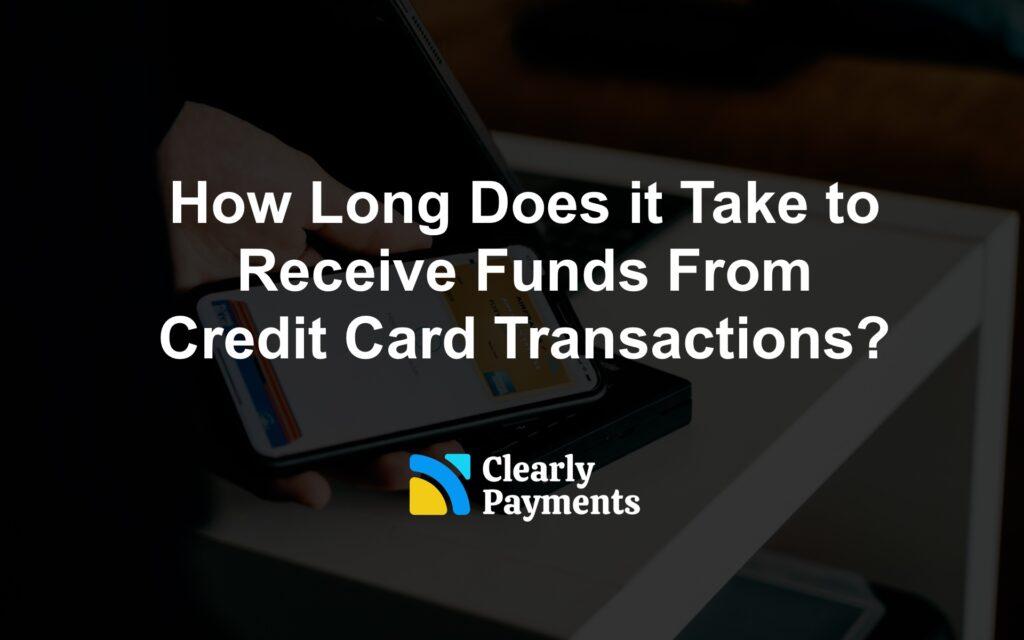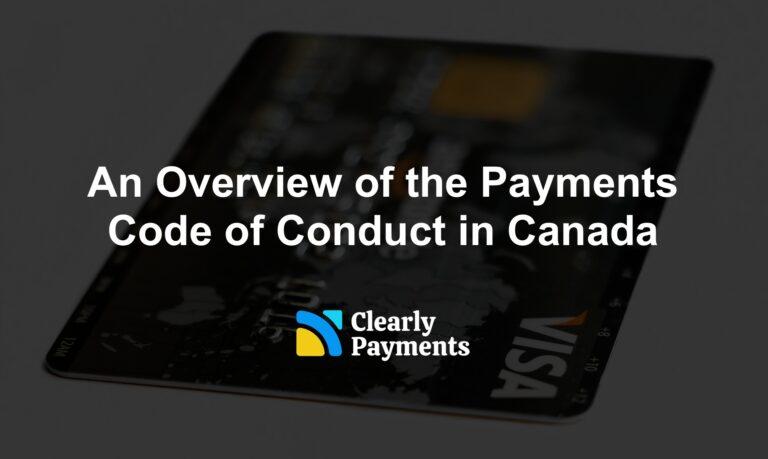Credit card transactions make up 40% of retail transactions and 56% of the total value of goods and services purchased. However, one question that often arises for merchants is: “How long does it take to receive funds from credit card transactions?”
In this article, we will explore the various stages of credit card processing, factors that can affect the timeline, and what merchants can expect in terms of receiving funds.
If you want the quick answer, it takes 1 to 3 days for a merchant account and sometimes several days longer for an aggregator (PSP/Payfac) account.
The Stages of a Credit Card Transaction
A credit card transaction may seem like a simple swipe or tap, but it’s actually a complex process involving multiple steps and participants. From the moment a customer presents their card for payment to the final settlement of funds, each stage plays a crucial role in ensuring the transaction is secure, efficient, and successful.
Here are the key steps in a credit card transaction:
Authorization: When a customer makes a purchase using a credit card, the merchant’s payment gateway sends a request to the customer’s issuing bank to check if the card is valid and has sufficient funds. This process typically takes a few seconds.
Batching: At the end of the business day, the merchant sends all the day’s authorized transactions, known as a batch, to their payment processor.
Clearing and Settlement: The payment processor forwards the batch to the credit card networks (e.g., Visa, MasterCard), which then route the transactions to the respective issuing banks for final approval and transfer of funds. This stage can take 1-2 days.
Funding: Once the clearing and settlement are complete, the funds are transferred to the merchant’s bank account. The time taken for this step can vary depending on the merchant’s bank and payment processor.
Factors That Affect Funding Timeline
In payment processing, the funding timeline refers to the duration it takes for the funds from a transaction to be transferred from the customer’s account to the merchant’s account. Sometimes there are funding delays. Several factors can affect this timeline:
Banking Hours and Holidays: Transactions are typically processed only on business days. Weekends and public holidays can delay the funding process.
Payment Processor: Different payment processors have varying policies and processing speeds. Some may offer same-day and next-day funding (like TCM), while others might take several days to over a week.
Fraud Prevention Measures: Payment processors may hold funds for a longer period to conduct fraud checks and verify the legitimacy of a transaction, which can extend the funding timeline. There will typically be some delays if there is abnormal transaction activity.
Merchant Account Type: The type of merchant account can also influence the funding speed. For example, high-risk merchant accounts may experience longer funding times due to additional security measures.
Currency and Cross-Border Transactions: Transactions involving currency conversion or cross-border transfers may take longer due to additional processing steps and compliance checks.
How Long it Takes for Merchants to Get Funds
On average, merchants can expect to receive funds from credit card transactions within 1-3 business days after the transaction is processed. However, this timeline can vary based on the factors mentioned above.
To ensure a smoother process, merchants should be aware of the following.
- Choose the Right Payment Processor: Look for a processor that offers reliable service and quick funding times.
- Aggregator Payment Accounts: Accounts from aggregators or PSPs or Payfacs like Paypal, Stripe, or Square typically take longer than dedicated merchant accounts..
- Understand Your Merchant Account Terms: Be aware of the terms and conditions of your merchant account, including any fees associated with faster funding options.
- Monitor Transactions Regularly: Keep an eye on your transactions and follow up on any delays or issues promptly.




